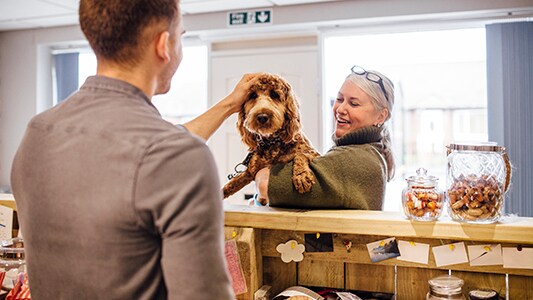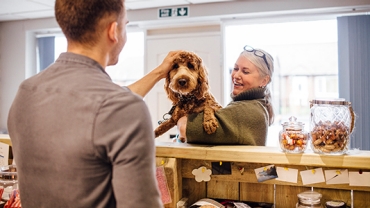
Future focused: the journey of V.I.P. Petfoods
Tony Quinn and his family, founders of V.I.P. Petfoods, were no strangers to outside interest in their growing business. Over the years they’d been approached by trade buyers and private equity firms looking to buy into their success. But waiting for the ‘right’ opportunity proved to be worth it.

“To be honest, I was a reluctant seller. We were building factories, we were going places, we were doing things. We’d just set up a business in America. We were making good money - it was great times,” said Tony.
But Tony and the family were also interested in exploring opportunities to grow the business. After weighing up a number of options, Tony had an ‘a-ha’ moment.
“It was a really busy time. We were expanding in New Zealand and doing a lot of stuff, and I just felt that if anything happened to me – I was doing some car racing a well – there was going to be a real problem trying to run the business.”
“So I said to my family ‘Hey, we’re going to sell V.I.P. Petfoods. It’s time to sell; it’s the right thing to do.’”
At that point, Tony spoke with PwC who recognised the potential for further growth and suggested exploring private equity as part of the family’s exit and succession strategy. They worked with Tony and the family to thoroughly prepare the business for a potential transaction, and then introduced the family to a number of potential partners with the right credentials and, importantly, the willingness to work with the family’s goals.
Tony and his family realised over $400 million from the sale of their business, reinvesting some of it back in the form of a minority stake.
Two and a half years later, having accelerated a program of investment and international expansion, and having acquired a number of complementary businesses, the private equity firm worked with PwC again and sold the business – now rebadged as The Real Pet Food Company – for $1 billion.
Both the private equity sponsors and the original business owners were able to realise significant value that neither could have created on their own.

Creating chemistry – how to form the perfect partnership
How can you form a sound relationship with a private equity investor for success like V.I.P. Petfoods? View more tips like this by PwC's experts in our full infographic.
Contact us
Jason Habak
Partner, Advisory, Private National Leader, PwC Australia
Tel: +61 2 8266 2960
Troy Porter
Partner, Private Capital Industry Leader, PwC Australia
Tel: +61 2 8266 7516











